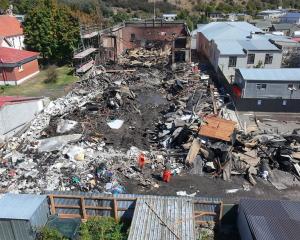Dairy conversions in Central Otago should be singled out for closer attention and controls imposed in the revised district plan, the district council has been told.
Twelve out of 108 submissions on the discussion document, which signals potential changes to the district plan, are concerned with land use intensification.
Eight of those submissions say the council should be making it harder to establish dairy farms.
In the discussion document, the council has said despite concerns expressed by some people about the impact of dairying, there were no plans to introduce rural land-use rules that singled out dairying from other forms of farming.
It noted there were concerns about the impact of dairying on soil conservation, water quality, landscape and biodiversity but said the Otago Regional Council was the agency best resourced to address soil conservation and water quality issues, in connection with dairying.
Dairy farming was a permitted activity in the current district plan and should continue to be so in the revised district plan, the council said.
The submission by Ann Rutherford, of Alexandra, was one of eight which opposed that view.
"I feel the Central Otago District Council needs to show more leadership when it comes to the issue of dairying and the negative effects it is having on Central Otago's landscapes and waterways,'' she said.
The landscapes and waterways were being ''ravaged'' by dairying and the council should ''stop pretending that dairying is no different from other forms of land use when that is patently not so''.
Another submission, by Tom Lamb, said dairying should be a discretionary land use activity, to manage the threat to the environment from the increased use of nitrogen and phosphates.
Tarras resident Bruce Lambie highlighted his concerns about ''industrial scale'' dairying in his area.
"Large numbers of trees have been felled to make way for pivot irrigators on a massive scale ... there is no doubt that this large scale dairying has had a detrimental effect on the landscape, as have these pivot irrigators, which draw vast amounts of water from aquifers,'' Mr Lambie said.
In her submission, Lynne Stewart, of Clyde, said land use changes from sheep and beef farming to dairy or dairy support should require resource consent, to protect waterways.
The council's hearings panel will meet for three days, starting on Tuesday to hear submissions.
Other topics raised in submissions included support for the council's moves to set design guidelines for buildings within heritage precincts, calls for a focus on wilding pines in the area and several submissions object to the noise pollution from gas guns, wind machines and bird scaring devices on orchards and vineyards.
The feedback from the public will be considered in preparing the review document.












